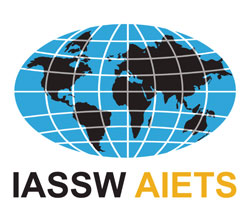Date: 5 December 2023
Location: Hotel Garden, Prishtina
Virtual platform: https://us02web.zoom.us/j/88991021481?pwd=MmhCSi9DY2RIVFFIdlNHeU9YTGdKQT09
In Kosovo, as in the region, and beyond, gender-based violence is a marked social problem,
stratified by social and economic inequality, traditional gender norms, and public
discourses against gender justice. Gender-based violence is an expression of fundamentally
unequal gender power relations. Gender-based violence is a human rights issue sanctioned
in legal frameworks and aligned with mandates of various institutions to combat violence.
Despite this, gender-based violence is a fact of life for many women and girls, as well as nonbinary gender identities.
Studies on the extent and forms of gender-based violence remain limited and in
some cases are conducted ad hoc. This results in challenges in policy-making and the design
of prevention and intervention programs, as well as deepens the silence on the experiences
of violence that in some cases lead to the loss of girls’ and women’s lives. Moreover, the lack
of research and data makes it difficult to assess the extent and impact of violence across
time and different social groups. The collection and reporting of data disaggregated by
gender, age, ethnicity, sex, ability, religion, etc. are necessary to develop intervention
strategies with an intersectional approach, which holds the survivors of violence at the
centre of interventions. In addition, challenging social-cultural norms that accept and
normalize gender-based violence and encouraging the involvement of men in initiatives
aimed at preventing gender-based violence should be rethought in preventive
interventions, as well as social and family services. Gender-based violence is a fact of life
for many women, girls, children, and adults with disabilities. Often, when victims report
gender-based violence, the justice and social services system fails to address their needs.
Parallel to this, social services remain limited in resources and methodologies for the
empowerment and social integration of survivors of gender-based violence.
Within such a broad social and institutional context, the Symposium aims to foster a
deeper understanding of gender-based violence and to discuss ways and practices to
address gender-based violence in a national and regional context. Also, the symposium
aims to bridge the gap between academia and practice – public administration and civil
society, and strategies for the co-production of research, policies, and services to eliminate
gender-based violence for evidence-based policy-making. With this objective in mind, the
Symposium brings together researchers from higher education, policy-makers, social
service providers, civil society, and media to rethink strategies for research, policy, social
and family services – towards mitigating and eliminating gender-based violence and
empowering survivors. More details at : https://www.iassw-aiets.org/wp-content/uploads/2023/12/Kosovo-Symposium_Gender-based-Violence.pdf
- Members
- Global S W Docs
- Newsletter
- News
- Regions
- About Us
- Committees









